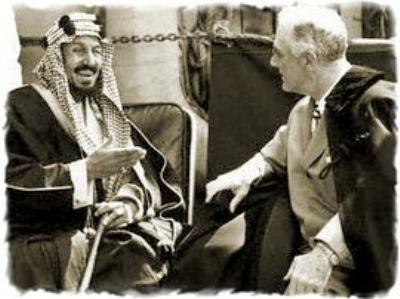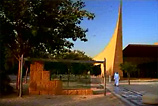 |
Home | Country Profile | Cultural Profile | Case Study | Campaign Analysis | Resources |
| Saudi Arabia : Friends of America |
 Cultural Profile Cultural Profile |
<<Case Study >> | Campaign Analysis |
 |
It is not often that a country has to launch a self-promoting public relations campaign to repair its image. However, that was what the Royal Kingdom of Saudi Arabia was faced with after the facts of 9/11 were revealed to the American public. When the facts unveiled that that 15 of the 19 hijackers were Saudi, polling showed a tremendous decline in American's perceptions of the Kingdom. In addition, the Saudi government faced intense criticism in the press and from some politicians about the financial and operational ties of some Saudi citizens to Osama bin Laden's terrorist network, and about Riyadh's mediocre efforts to fight terrorism. The Royal Crown Prince Abdullah of Saudi Arabia launched a costly PR campaign that would help boost his country's image in the United States. Qorvis Communications, a DC-based public relations firm, was hired to lead and handle the campaign. Faced with a tremendously difficult task of repairing Saudi Arabia's image amidst a tense and delicate political climate, Qorvis Communications had their work cut out for them. Tracing their campaign will reveal what strategic approaches they took and what obstacles they faced throughout the campaign. |
Prior to the events of September 11 th 2001, the Royal Kingdom of Saudi Arabia enjoyed tremendous support in both the United States and abroad. However, the aftermath of September 11 th deteriorated Saudi's image in the US, polls showed that nearly 90 percent of Americans did not identify Saudi Arabia as an ally . The sudden collapse of Saudi Arabia's standing in the US put tremendous pressure on the political relations between Riyadh and Washington DC, as there was a tremendous economic interdependency between both countries. In short, the Crown Prince Abdullah of Saudi sent several government officials, including Adel Jubeir, the chief foreign-policy adviser the Prince, to the US to meet with several PR firms. In the end they hired Qorvis Communications, a DC-based public relations as the lead PR firm for the Saudi Arabia Campaign.
Qorvis Communications was hired in October of 2001 for an estimated $200,000 per month fee. Their primary tasks were to handle communications, polling, some lobbying as well as arranging high level meetings for Adel Jubeir. In addition to their primary functions, Qorvis Communications hired a slew of powerful PR firms and agencies to undertake fundamental aspects of the campaign.
Amongst the firms hired include Patton Boggs a powerful law-lobbying firm headed by Tommy Boggs. Sandler-Innocenzi , a GOP media-buying firm that has worked for the Republican National Committee. In addition, Hill and Knowlton, the number three PR firm worldwide was hired for $77,000 per month as of February of 2001, to promote the Kingdom-owned Saudi Basic Industries Corp. as a leading chemical company. The Gallagher Group, run by lobbyist Jamie Gallagher, received $20,000 from November to February of 2002. Finally, Burson-Marsteller, a major PR firm was paid $2.5 million to place newspaper ads, including one offering condolences for 9/11. Burson has done work for Saudi interests before, including representing the King Faisal Foundation. Berson specifically, bought national newspaper ads, promoted advertising and offered communications help. In addition they helped the Saudi Embassy put together two print ads that ran in over twenty newspapers on September 19 and 21 of 2001.
The first phase of the PR campaign headed by Qorvis Communications, was centered on the theme, the “values we share.” The Sandler-Innocenzi agency was in charge of the commercial-placing jobs of the initial phase of the campaigning. The first appearance of such a strategy was a multimillion-dollar TV ad that ran in 20 major cities across the country. The first ad was headlined, "America We Grieve With You." The subsequent ads strategically coincided with the U.S. visit of Saudi Crown Prince Abdullah, who met with President Bush at his ranch in Texas, in October of 2001. One ad showed the U.S. flag and Saudi leaders with American presidents past and present, the tag lines in the ad read, "The People of Saudi Arabia: Allies Against Terrorism" and "The People of Saudi Arabia: Allies For Peace." The ads sought to undo the damage. The other two ads, done with a simple black backdrop and white lettering, featured quotes from President Bush and Secretary of State Colin Powell praising Saudi Arabia and its cooperation in the war on terror. Both spots end with the same caption: "The People of Saudi Arabia. Allies Against Terrorism." The overall Saudi strategy of the ads was to "increase awareness" and promote their "commitment in the war against terrorism," according to the executive of Qorvis Communications, Michael Petruzello. The most recent wave of ads took place in June of 2003. The ads aired in 14 major US markets and were targeted to the American public, despite rumors that some of the ads were geared towards investors or government officials. Business and civic leaders from Saudi Arabia also began touring the United States to reinforce the relationship between the two countries. In addition to ad campaigns, Al-Jubeir and Saudi Arabia's U.S. ambassador, Prince Bandar bin Sultan, have written op-ed pieces published in The New York Times, The Washington Post and The Wall Street Journal. Crown Prince Abdullah's foreign policy adviser, Adel Al-Jubeir, has held news conferences to announce that the Saudis are monitoring Saudi charities to make sure their funds are not diverted for terrorists' use. Despite the strategic approaches to the public relations campaign, Qorvis Communications faced numerous obstacles. The firm not only had to repair the political damages of Saudi Arabia's image in the US but at the same time respond to the stern criticism received from the American public. In addition, many Saudis believed that the PR campaign was too shallow to be effective The most severe obstacle perhaps was that several cable TV networks, including the Weather Channel and A&E, Bravo, USA Network and the Sci-Fi Channel, for example, rejected the Saudi ads, citing them as inappropriate. In addition, the Gallup Poll conducted a survey of 1,000 Americans seven months before the attacks, with 46 percent holding an “unfavorable” opinion of Saudi Arabia, in a similar Gallup Poll conducted five months after the attacks, the polls showed the rating jumped to 64 percent and has remained around 61% as a poll conducted in February of 2003 indicated. |
TV Spots
Radio Spots
|
These figures were strong indicators of the faint effects of the PR campaign.Furthermore, amidst the numerous problems faced by Qorvis Communications, the height of the firm's problems came about when three of the founding partners: Judy Smith, Bernie Merritt and Jim Weber, left to join marketing firm Clark & Weinstock. Rumors had suggested that these partners left when accusations were flying around that a Saudi princess had funded one of the 9/11 hijackers. Such events suggested to the Saudi's that the problem was not limited to the American public, it seemed even the firm itself had problems selling the “Saudi line”.
| Amidst the numerous problems encountered by the firm, there was little sign of progress in the polls. Many critics believe the whole campaign has been a tremendous monetary failure, according to one figure, “This is all smoke and mirrors in order to hide the truth" says Ali Al Ahmed, a Washington-based Saudi dissident. "Instead of spending millions of dollars for these ads, they should be spending it building schools and modernizing the country." |
|
 |
The campaign has continued to fail beyond the fact that there were numerous logistical problems. From the beginning of its implementation, the campaign went against tremendous odds because Saudi Arabia has always been a difficult place for Americans to identify with, given its lack of democracy, women's rights and freedom of speech and religion.
Despite continued criticism, the Saudi's have been determined to prove that they are a trustworthy ally. As the campaign continues, and more than $ 4 million dollars spent, Americans are still weary of Saudi's being their ally. The weak signs at the polls, and allegations that a Saudi princess funneled money, to a September 11 hijacker elicited angry responses from both sides. 2003 saw a revamped campaign complete with new ads and a new strategic approach. |
| Beyond the ads, the Saudi Royals put more effort into meeting with government officials as well as the media. The Saudi's have also opened more discussion about religion and other issues to better educate the American public. Despite such new efforts there has been little sign of progress because Americans are still concerned with the lack of cooperation on the terrorist front. |
|




